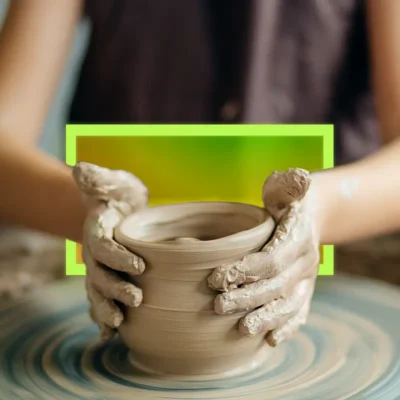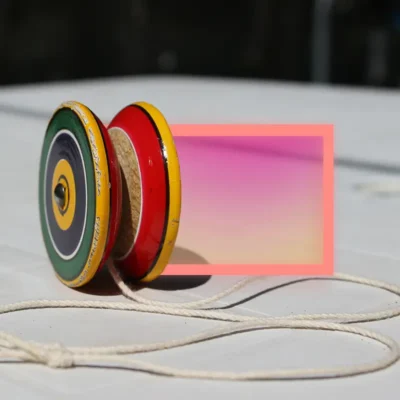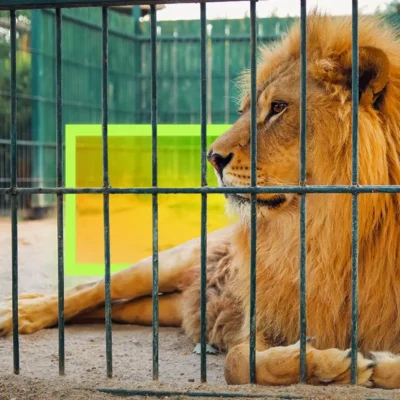Mud, sweat, and tears
Midway through a grueling, muddy obstacle course, Shani Tran is so grateful for the support of her father, her teammate, who cheers her on and pulls her through. But in other parts of life, she knows, he’s just not there for her in the same way. And that’s … okay. She shares three stories — with humor, and with honesty — that build to a lifelong lesson about seeing people for who they are, not who you wish they’d be, and learning to take responsibility for your own happiness.
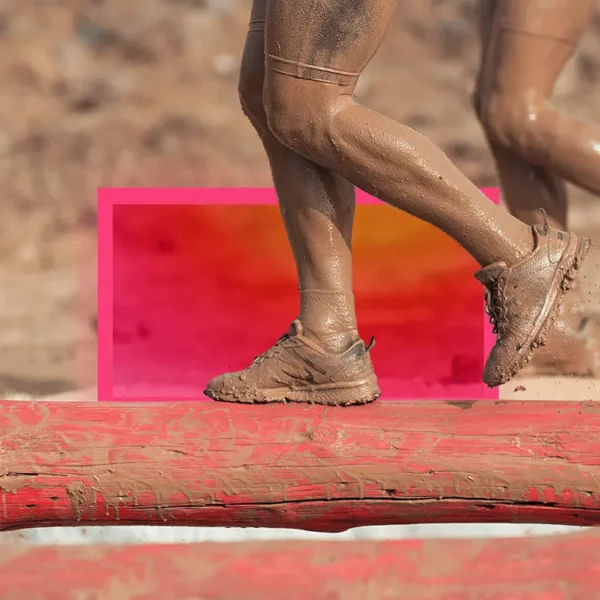
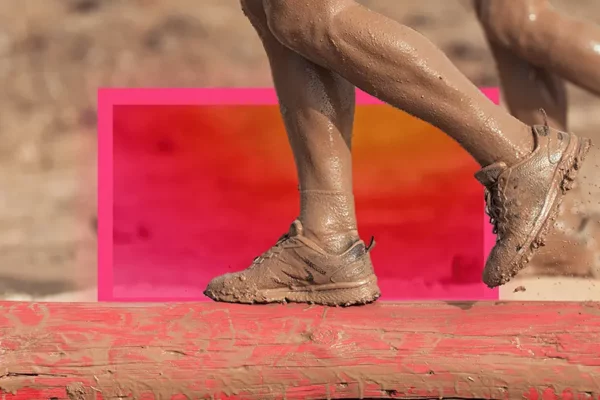
Table of Contents:
Transcript:
Mud, sweat, and tears
SHANI TRAN: The air horn blasts. Our wave of runners flow across the dirt field. Everyone runs at full speed, but I take my time. I focus on stamina and sustainability. I surprise myself with how strong I am. Through it, my dad is right here with me.
ROHAN GUNATILLAKE: In her charismatic TikTok videos and her practice in Arizona, therapist Shani Tran teaches people to cultivate healthy interpersonal relationships. It’s a lesson she’s had to learn in her own life, through her complex relationship with her father. In this week’s story, Shani tells us about a time when her trust in her father was tested to the limit, whilst running a challenging obstacle course in Minnesota, and how she’s learned to take responsibility for her own happiness.
In this series, we combine immersive first-person stories, breathtaking music, and mindfulness prompts so that we may see our lives reflected back to us in other people’s stories. And that can lead to improvements in our own inner lives.
From WaitWhat, this is Meditative Story. I’m Rohan, and I’ll be your guide.
The body relaxed. The body breathing. Your senses open. Your mind open. Meeting the world.
TRAN: I feel the soft, muddy ground underneath my feet as I lean to the left and stretch my back. The sun crests over the tree line in the distance, and the air smells earthy. It’s 9 a.m. on a humid summer day. I’m standing in a field in the middle of nowhere in Minnesota. Hundreds of people gather around in loose crowds, some of them so caked in mud you can barely make out their features. It’s like something out of a zombie apocalypse movie, except for the giant obstacle course taking up most of the field.
It’s called a Tough Mudder. A 10K race, but really a series of obstacles that test your strength, endurance, and ability to work together. I’ve been training for months in the gym. As I line up with my wave of fellow runners, I feel like this is something I can do. I feel confident.
The announcer with a megaphone starts pumping up the crowd. I smile and shout until he mentions something about bloodshed. “I’m sorry, what? Come again. Bloodshed? Isn’t this an obstacle course?” Now my heart’s racing. Everyone around me’s cheering. Do they know what they’re getting themselves into?
I turn to look at my Dad. He’s standing right next to me, wearing his red workout shorts, and cheering along with everybody else. He’s 5’10”, wiry, fit. He’s ready. My confidence returns. I get amped too. I remember, I’m not doing this on my own. We’re doing this together.
Months earlier, I’m texting my friends about running this race with me. I know from the Tough Mudder website that it’s all about teamwork. There are literally obstacles you can’t do without another person to help you. My friends all think I’m crazy for even suggesting it. “Yeah. No. Not interested.”
So, I call my dad. Right away he says, “Absolutely. Let’s do it, Shani girl.” That’s what he always calls me. Shani girl. I sign us both up right there, and we end the call.
My relationship with my father is in what I would call a rebuilding phase. We talk on the phone pretty regularly, but we’re not what I would call close. I’m an only child on my dad’s side. My parents were never married. When my mom was pregnant, my dad left for college. My mom joined the military, so she could support me. And she did. I can’t remember many moments from my childhood when my dad was present. Now that I’m an adult, with my own family, my own kids, I’m hoping more than anything that I can depend on him to show up.
The air horn blasts. Our wave of runners flow across the dirt field. Everyone runs at full speed, but I take my time. I focus on stamina and sustainability. During the first set of obstacles, I carry a wooden log and trample through deep, wet, sloppy, mud. I surprise myself with how strong I am.
Through it, my dad is right here with me. That surprises me too. I know he’s faster than me. He could easily run up ahead. But he’s staying right here.
I start to trust that, at the end of each obstacle, he’ll be encouraging me. “You got this, Shani girl.” “Good job, Shani girl.” He won’t go on without me, even though he could. It’s part of the speech the race organizers give at the start. “You don’t leave your teammates behind.”
Here, in this intense mud-filled race course, my dad is committed to this sentiment in a way he never seemed to be able to in my childhood.
I’m fifteen years old and standing outside a hotel with my suitcase. I can feel the tension in my body. I grip the plastic handle tightly as I fight the urge to cry. My mom and I have been giving each other the silent treatment all day.
Both she and my stepfather are still in the military, and we just moved back to the U.S. from Italy, where we’ve been living for the past eight years. We have to stay in this hotel in Waukegan, Illinois until we figure out more permanent housing. Luckily, I’m getting a little break from the mother-daughter tension. I’m going to spend time with my dad. I’ve only seen him once or twice in eight years.
I throw my suitcase into the backseat, I feel a calm wash over me. I’m filled with hope for the weekend ahead. All this time we’re going to spend together, time we’re going to make up for after all these years. That night at his place, he sleeps on the couch and lets me take the bed.
But, when I wake up, he’s already gone. He spends all day at work, and when he gets home, he says, “Ok, pack your bags.” He’s taking me to stay at my great-grandmother’s on the southside of Chicago. I’m confused. I don’t dislike my great-grandmother’s house. He drops me off in a hurry and drives away. His mom dropped him off to be cared for at his grandparent’s house, and now he does the same to me.
Watching his car disappear around the corner I wonder, why am I not a priority to him?
Our next obstacle is called The Pyramid Scheme, a 25-foot ramp that’s too steep to run up, especially with this much mud all over my shoes. The people around us seem to have done these races before and know exactly what to do. One of them lays down on the ramp and the next person climbs up and stands on their shoulders, and then the next person, until there’s a human ladder that goes all the way to the top.
It’s an amazing display of teamwork, but all I can think is: “I can’t hold six people’s weight.” I feel uneasy about starting the climb without knowing whether someone is going to stand on my shoulders. I edge over to the side of the ramp and slowly work my way up.
My feet go up and then slide back down. Before long, I realize this isn’t going to work. I need something to hold onto. Something to push off of. Suddenly there’s a man at my side. But it’s not my dad. It’s a stranger. He says, “Put your feet on me.” And I think, “You’re a stranger! But okay, here we go.” I stand on his shoulders, and another man reaches down from the top of the ramp to pull me the rest of the way up. When I reach the top, I turn back, and I see my dad is now making his way up the human ladder. The man and I both reach out our hands, gripping my dad’s forearms, and pull him up and over the last foot of the ramp. I look at the stranger and smile.
GUNATILLAKE: Has there been a time when you’ve received a helping hand from someone unexpected. Take a moment to bring them to mind, and if you can, remember the feeling that their help brought about in you.
TRAN: Five years earlier, I’m 26 and standing in a different sea of bodies, equally buzzing with excitement. I’m backstage in a large auditorium, and we’re all wearing our black caps, gowns, and light blue sashes. Looking around, I realize I’m wearing my sash wrong, but it’s too late to fix it. We’re about to line up in alphabetical order and head out on stage. Today, I’m graduating from the University of Wisconsin, Milwaukee with my Master’s.
I’ve worked so hard to get here. When I first started, I was on academic probation. I had to make certain grades, and I did it. It’s all been building to this day. This is my moment.
I see a text from my husband. “Just so you know, your dad’s here. I’m sitting by him.”
“Great!” I reply. I picture what the scene will look like when I walk across the stage. Seeing my dad and husband in the audience, smiling, clapping.
The minutes continue to tick by as the line of graduates in front of me slowly diminishes. There’s a lot of people here. When it’s almost my turn to go, I feel my phone vibrate again in my pocket. It’s my husband. “I just want to let you know that your dad left because he had to catch a flight.”
I feel silly for ever hoping things could be different.
After the ceremony, the other graduates gather around the campus. They’re all taking photos with their big families. With their proud parents. Today I just have me and my husband. He knows exactly what I need, even in these moments of disappointment. He puts his comfortable, warm arm around me and squeezes my waist. We take some selfies. I slowly feel my anger shift towards gratitude.
I remember my dad’s limitations. He was the first person in his family to go to college. His father never showed up for his graduation. I can’t be the one to process those feelings for him.
I squeeze my husband back. I’ve always known there are people besides my father I can trust to support me. That there are other loved ones, even strangers, that can lift me up when I need it. But he’s my dad! I can’t stop myself wishing that perhaps my father could be one of those people too.
On the race course, we round the bend and turn back to where we started this morning, the final obstacle looms over us. The Mudderhorn. At first glance, it’s like a larger version of a childhood playground. A massive netted pyramid with people scrambling up and down each side like ants.
I have mud in my hair. In my shoes. At some point, I lost my shirt, and I’m just wearing my sports bra. There have been some obstacles I was too scared to do and some my dad wasn’t able to do, but we stuck together this entire time. We’re always checking in on each other. We come through for each other. At this moment I’m glad I chose him to do this race with me.
The last few obstacles are hard for my dad, and he’s having trouble gripping the ropes of the Mudderhorn with his hands. We check in and decide together, he’s going to skip this one.
I continue up the obstacle and, for the first half of the climb, I feel okay. This is cool. It’s only when I get to the top that I become scared. My shoes are muddy, and all it takes is one slip. My mind is flooded with anxiety. I become very aware of my footing, my hands. I make the mistake of looking down at the sea of people far below me. Everything blurs. as my fear and exhaustion take hold.
Then I see my dad, standing out from the crowd in his red shorts. He’s looking up at me and shouting something, his hands cupped around his mouth. I can’t hear him from up here, but just knowing he’s here, fully present with me, makes me feel safe.
I remember that fear and excitement are so closely related. The difference is how you breathe. I feel the air fill my lungs, and I try to slow it down. “This is something you can do,” and I begin my careful descent.
When I reach the bottom, all the events of the day come crashing down on me. I did this. My dad is right here. We did this. I’m not thinking about the past. I’m not thinking about the future. All the sadness and frustration I feel in my relationship with my father fades away. For the three and half hours we’ve been running this race, I’ve gotten to experience what I’ve been wanting my entire life. I have a father that shows up for me. Who supports me, both physically and emotionally. If this is a rebuilding phase, we’re off to a great start.
GUNATILLAKE: If Shani is feeling supported physically and emotionally, how are you doing? And if there’s someone in your life that you feel ready to reconnect with, ready to rebuild with, how about we make the soft intention to do that?
TRAN: Two years later, I’m crying in a hotel room in Las Vegas.
I offer to join my dad here to celebrate his birthday, together, for our first father daughter trip. Since the Tough Mudder, our relationship has been challenging emotionally. At first, we talk about how much we enjoy the race and quickly make plans to do a second one. But it just doesn’t happen. We keep waiting for the right time but the longer we wait the more our old issues crop up. I stop feeling like a priority in his life.
I join him in Vegas as a grand gesture, another idea to bring us together. Things start well. We walk into our hotel room; it’s beautiful. The furniture is crisp white. Mirrors line the walls, and the glass glistens. But when I look closer, my heart sinks. My dad got a room with just one bed. But there’s two of us. I feel upset that he doesn’t think to ask if I’m okay with this. I get anxious in unfamiliar settings and when I’m away from my kids. It triggers my anxiety, which prevents me from being able to sleep.
By our second night here, I’ve slept about three hours total. Sleep deprivation wreaks havoc on my mind and body. It’s 10 p.m., and my mind is spinning out of control. I’m having intrusive and negative thoughts. I’m worried that if I don’t get some medication, I could become hysterical and break down psychologically.
I take a ragged breath and walk over to the side of the bed where my dad is asleep. “Hey dad, I need to go to urgent care,” I say through tears.
“Sure, Shani girl. Go ahead.” It’s 10 p.m. at night. I don’t know the streets in Vegas.
Down in the parking lot of our Las Vegas hotel, I look down at the flat tire on my car. I feel in no condition to fix it. I call back up to my dad and let him know what’s going on. “Okay, I’ll come down,” he says. He puts on the spare and says “It should do fine for a short distance. ”
I think, “Why doesn’t he stop me? Why doesn’t he step in? Why am I not a priority?”
I drive through the Vegas night on a bald spare tire, my heart and my head pounding. My stomach sinks. I feel a familiar sensation of disappointment. I’ve spent years trying to figure out if my father is someone I can trust. I’ve put a lot of work into our relationship in the hopes that he would meet me halfway. That he would prove himself to be someone I can depend on to show up. I wipe a tear from my eye and tighten my grip on the steering wheel. I’m tired of being let down.
I make the decision to not let my father make me feel sad anymore. There are no race organizers out here reminding us not to leave each other behind, to look out for one another. It’s up to me to figure out what support looks like without him. To focus on the people I love who can meet my needs, and to find the confidence — when it’s necessary — to meet my own.
I’m taking a break from speaking to my father. My decision to do this hurts. The pain is visceral. He’s not a bad person. I still love him. It’s just that having to constantly forgive him for the ruptures in our relationship has become too much. It feels like the muddy ramp where I take two steps up and then fall two steps back. It costs me more to stay than it does to leave. The race we ran together is still the highlight of our relationship. I look back on it fondly. I have kids of my own, relationships to nurture, other emotional hills to climb.
When someone isn’t meeting our needs for safety and connection we have to figure out, “What does support look like for me? Where is my emotional energy most useful? It’s our responsibility to choose whether we want to continue to be a part of that relationship. That’s not to say that decision is easy. Sometimes it takes years to figure out that we need to walk away. But ultimately, we’re all running our own race. We have to decide when to keep going, when to take breaks, and who we want to bring with us. Who we can trust to have on our team. I’m finding that out for myself everyday. One big obstacle at a time.
Rohan’s closing meditation
GUNATILLAKE: Thank you Shani.
Sometimes people are right beside us in our lives, and sometimes they are not. Sometimes we think about them, and sometimes they are not in consciousness at all. It can be like this.
Sometimes the best we can do is not try and change other people, but refuse — refuse to take on the patterns that we inherit from them.
Sometimes when we feel others have not shown up for us, what we do is get good at showing up for others.
So that’s what we’ll do in our short closing meditation together, we’ll show up.
Doing a meditation where we pay attention to the breath is pretty much as old as the tradition itself. But today when we do it, we’ll frame it as showing up for the breath.
It’s not a normal boring breath meditation; it’s showing-up training.
The breath is always with us. But we don’t often acknowledge that it’s happening. That it’s doing what it does.
But we will today. Today we’re going to show up.
Showing up for the breath doesn’t have to be a big deal. All we do is recognize that it’s happening, place our awareness alongside it, and keep it in mind.
When it’s an inbreath, we’re there, our attention is there. When it’s an outbreath, we’re there. When it’s neither an inbreath or an outbreath, we’re still there.
If we have a pattern in our lives, inherited or not, which means that we can be absent for things or for people, one way to get better at showing up is to just get better at showing up. Of feeling what it’s like to be with something, however it is. So let’s keep doing that.
Showing up for the breath. Right by its side. You got this.
There are obstacles to our showing up. And your particular mix right now is yours to know. Distractions, boredom, tiredness. All getting in the way of the simple act of showing up. But we show up all the same.
Aware of the breath. Holding its hand. Not too tight. Not too loose. Enough. Enough for it to know that we’re there.
Acknowledging that the breath exists. And showing up for it. Held in the hand of your awareness as it does its thing.
There are obstacles. New ones, or the same from before. And sometimes the right thing to do is to drop the breath and show up for the obstacles. Because sometimes it’s the obstacles which deserve our attention and care. This is the greatest skill in meditation perhaps. Knowing what to be with and how to be with it.
Because the game is not about being steadfast, it’s not about sitting still, it’s about learning. Learning the wisdom of what to do and when.
Thank you Shani for your story and your important work. And thank you for your work too. Good job.
We’d love to hear your personal reflections from Shani’s episode. How did you relate to her story? You can find us on all your social media platforms through our handle @meditativestory. Or you can email us at: [email protected].



